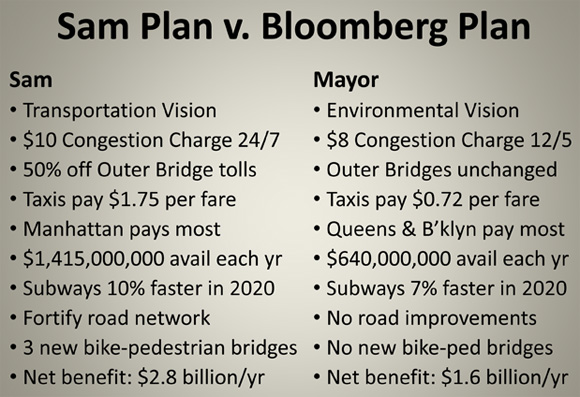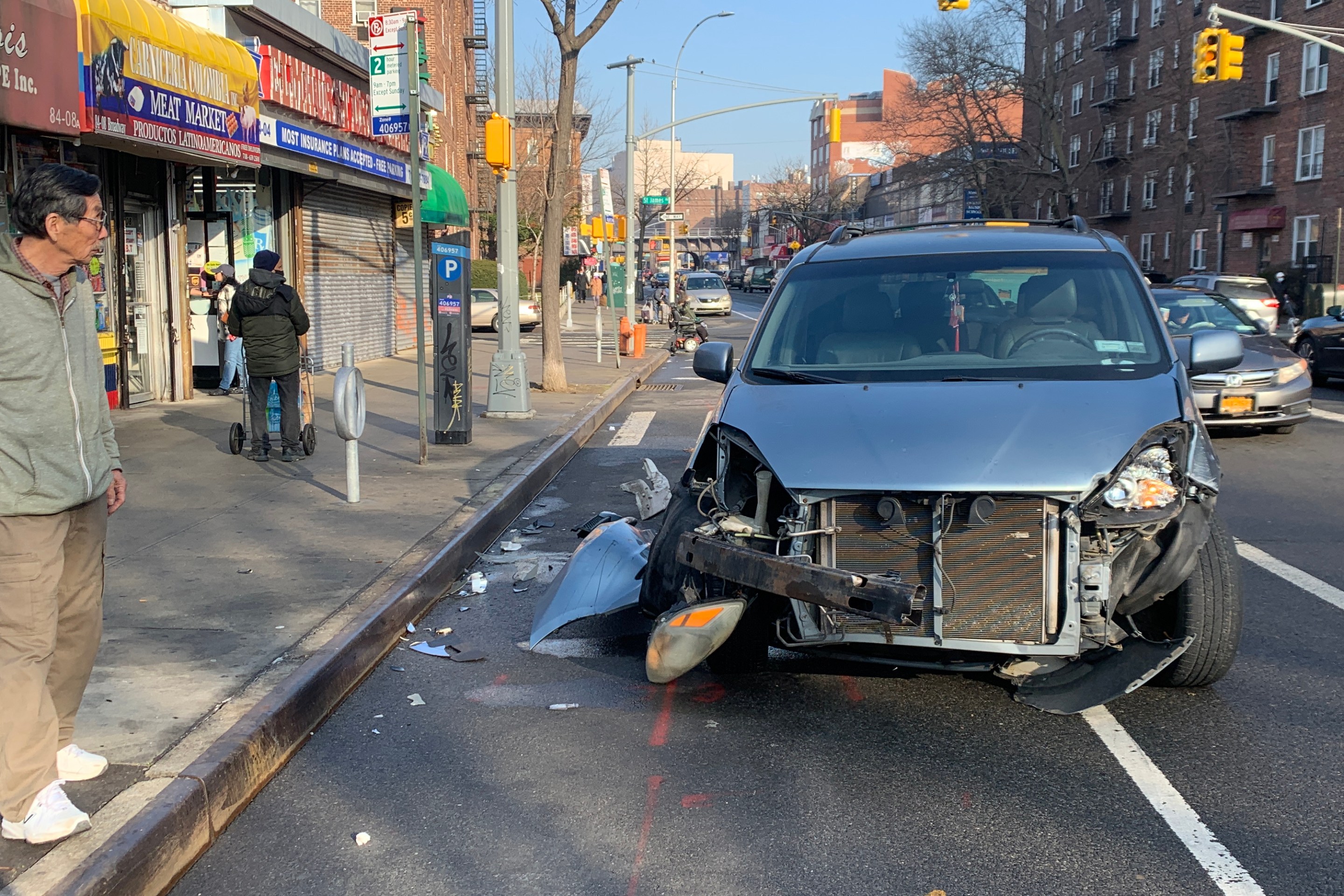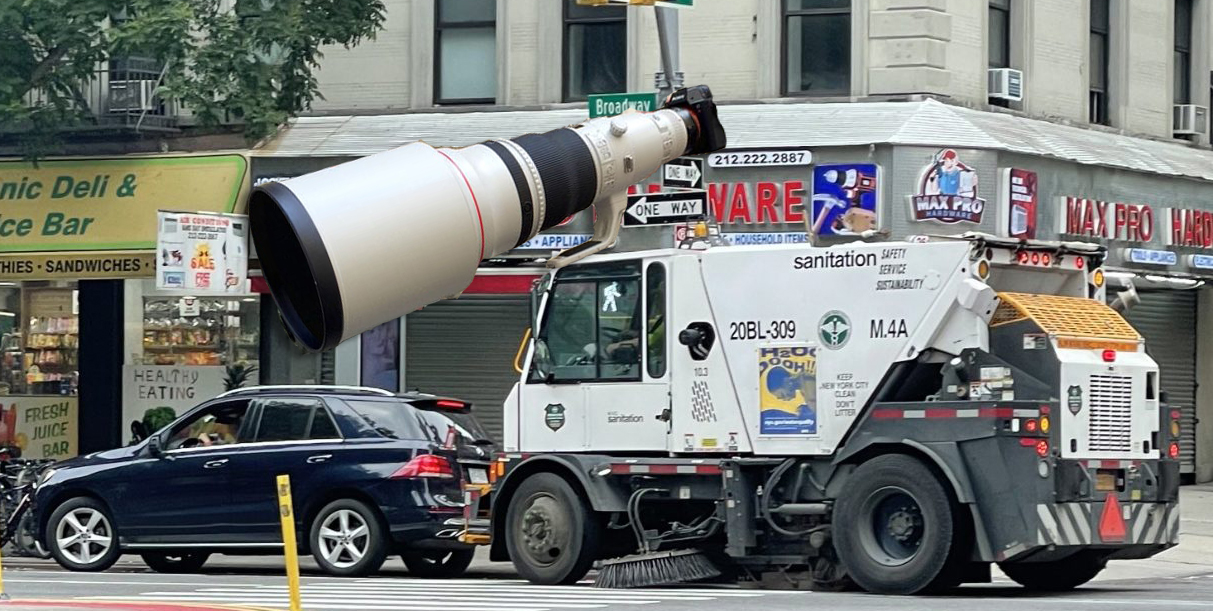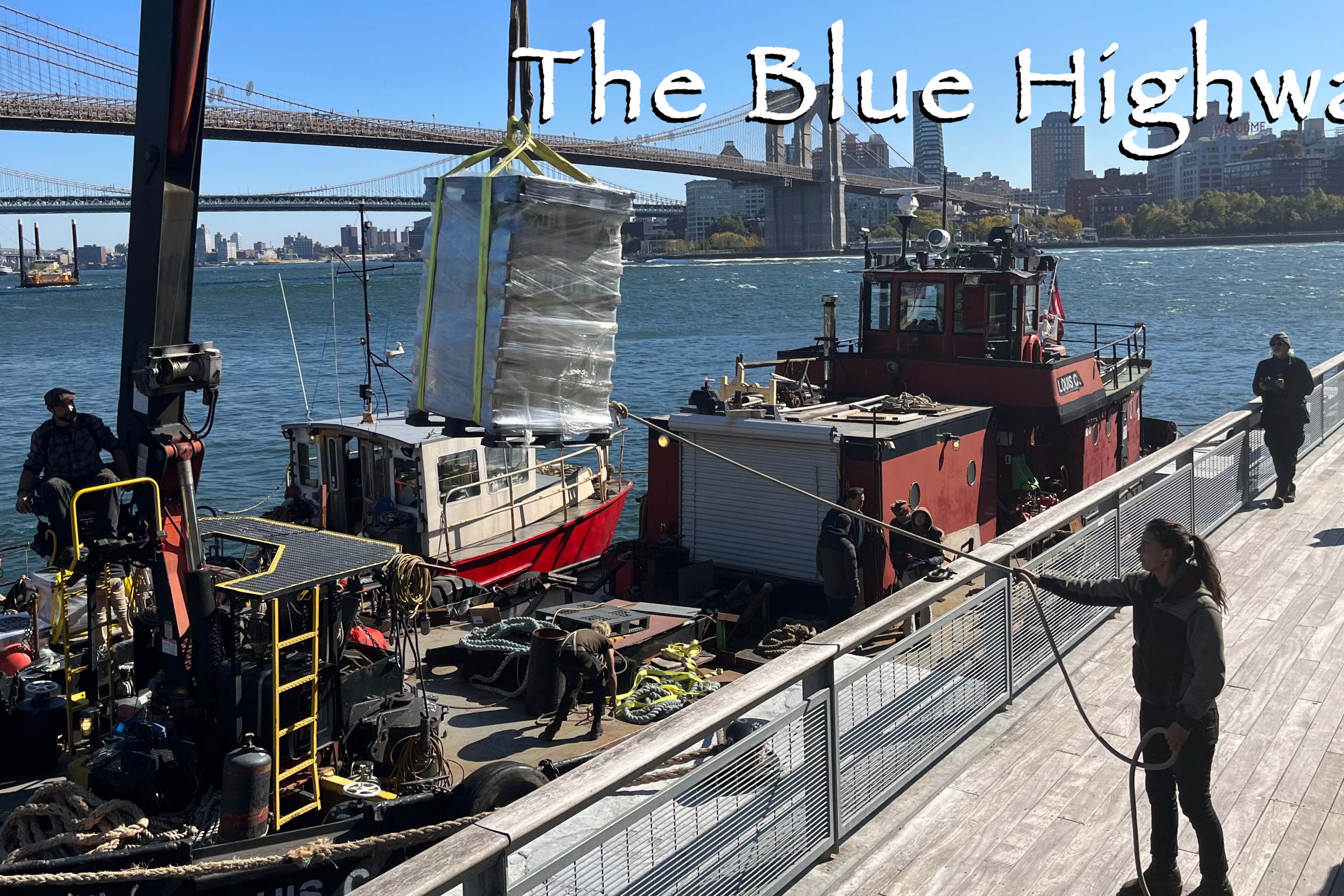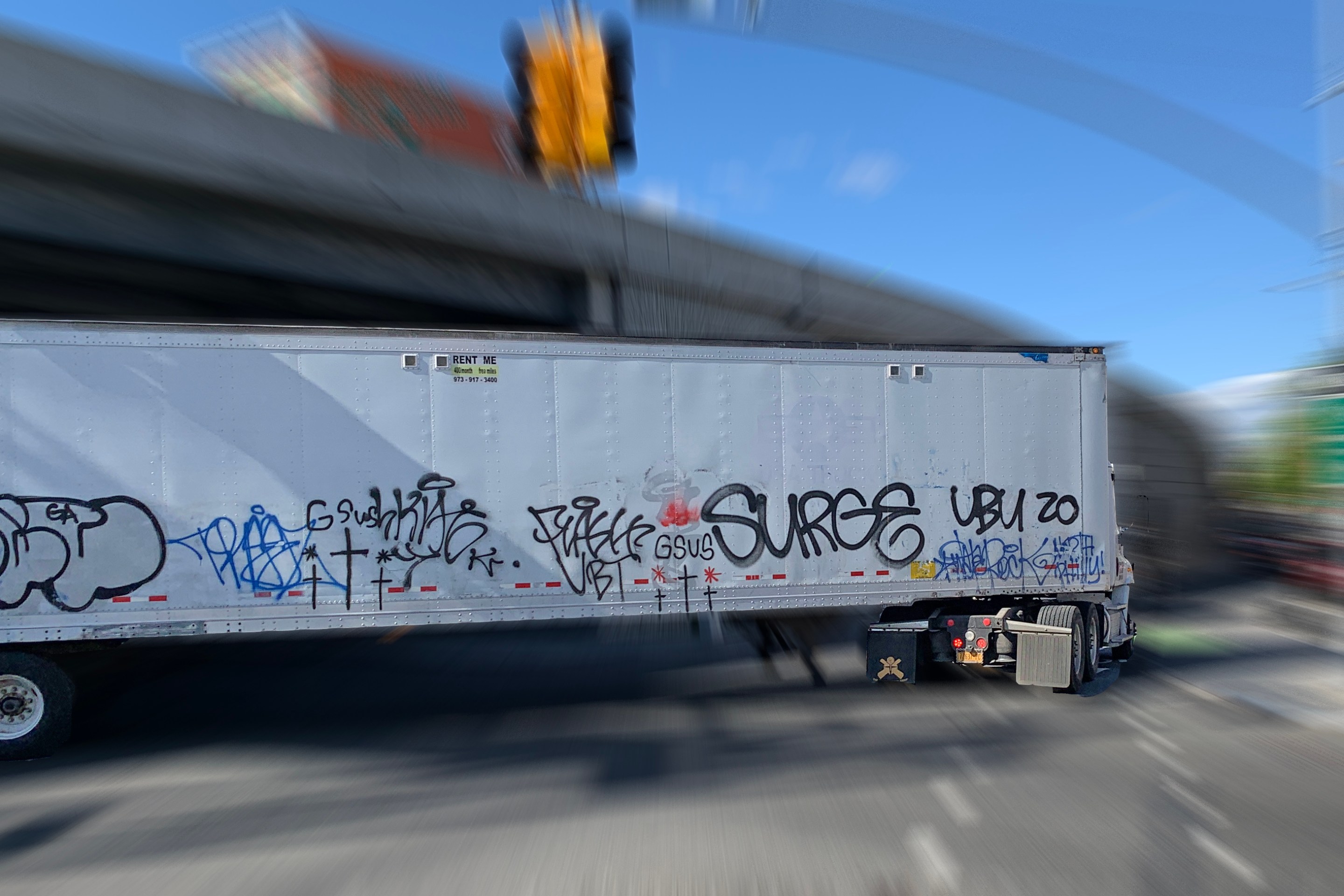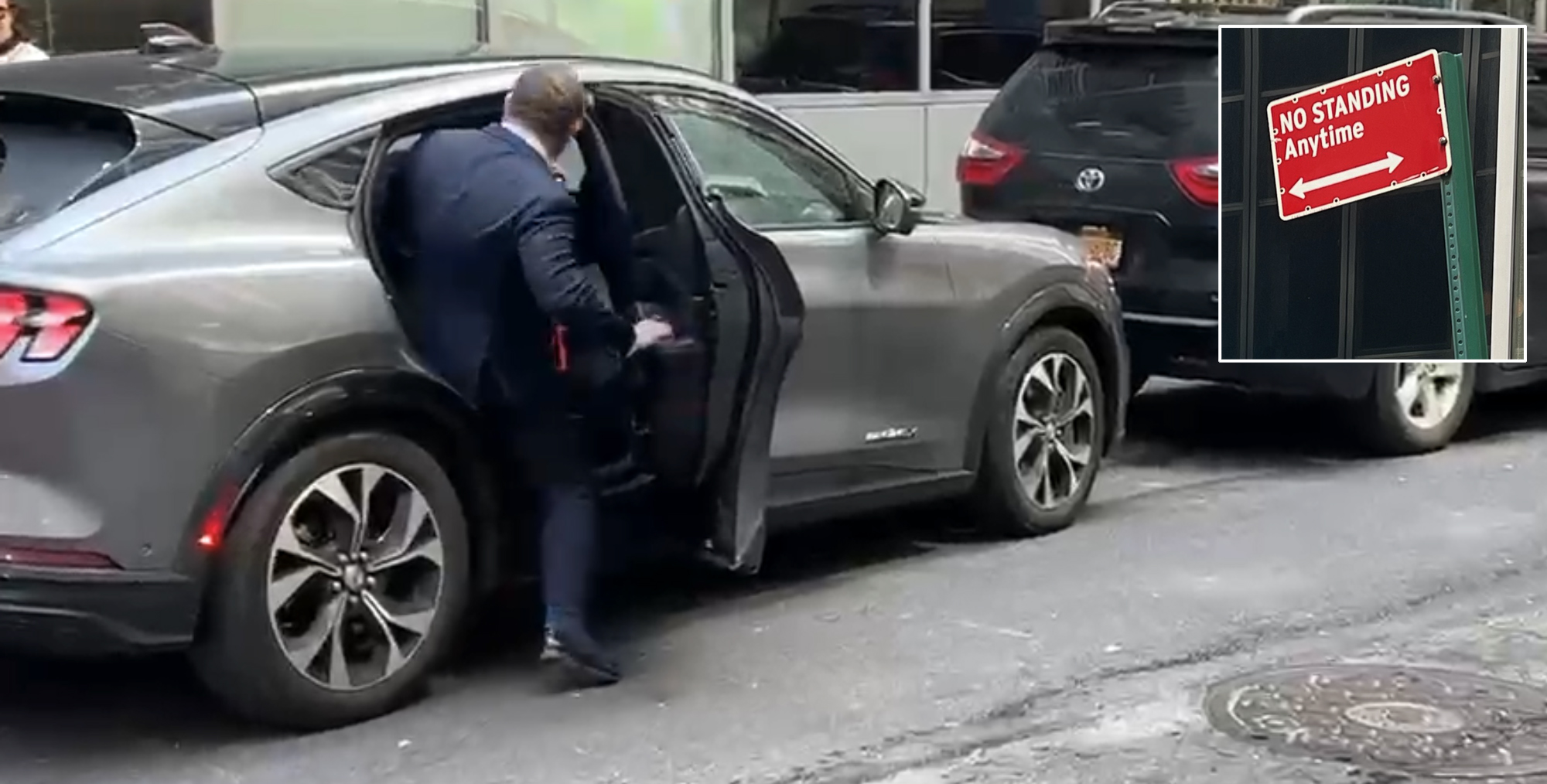Saturday will mark two months of non-stop acclaim for Gridlock Sam’s traffic-pricing plan. The accolades kicked off on March 5 with a gushing op-ed, "Meet Sam Schwartz," by New York Times emeritus editor Bill Keller, and they haven’t let up. The Wall Street Journal, Transportation Nation, WNYC’s Brian Lehrer Show, Channel 13, and Crain’s New York (a profile plus an editorial) have extolled Sam’s plan to overhaul New York’s tolling network and generate $15 billion over the next decade to improve roads, bridges, subways and buses across the city. By now, any New Yorker who professes ignorance of the plan has either been hiding under the proverbial rock or is flummoxed by its political implications.
Such an outpouring of support is unprecedented for congestion pricing proposals anywhere, and is virtually unheard of for any serious policy proposal in New York. I’ve spent a good deal of time pondering it from my vantage point as a long-time traffic-pricing proponent; as an exponent of rival but complementary pricing plans, first with Ted Kheel and more recently with the Move NY coalition; and currently as a modeler helping Sam quantify his plan’s traffic and revenue benefits. (That work is supported not by Sam but by the Kheel family’s Nurture Nature Foundation.)
So how do I explain the overwhelmingly positive press reactions to Gridlock Sam’s Fair Plan, as he calls it?
First, the plan feels inclusive, far more so than any prior traffic-pricing plan.
Consider what it offers residents of Queens, the city’s most car-dependent borough after Staten Island: dollar fares on MTA buses in subway-less areas; Bus Rapid Transit service on the Long Island Expressway; and, most spectacularly, a halving of current tolls on the borough’s five MTA bridges, from the Throgs Neck in northern Queens to the Gil Hodges and Cross Bay Blvd. Bridges in the Rockaways. These benefits are palpable — the MTA bridge discounts alone will save Queens residents $100 million a year — and they are integral to the plan, in accordance with the precept of charging premium tolls to drive into the congested heart of the city. Other boroughs are slated to get similar discounts and benefits including BRT on the Belt Parkway and the Bruckner Expressway, a widened Staten Island Expressway, and highway expansions intended to take trucks off Brooklyn streets.
Second, Sam’s plan feels egalitarian.
The borough chipping in the most dollars is gilded Manhattan, thanks largely to an average $1.75 surcharge on medallion taxi fares (much of it delivered via a 30 percent boost to the wait time charge — in effect, a fee on taxi congestion). Another Sam measure, terminating Manhattan car owners’ sales tax break on monthly garage fees, won’t bring in much, just $15 million a year, or 1 percent of the plan’s total revenue, but it will further soften the rap on congestion pricing as a tool to enrich the wealthy. And of course the billion dollars a year in revenue reserved for mass transit will be a boon to all: the city’s non-car-owning majority gets better transit, while drivers get less-congested rides because thousands of straphangers didn’t defect to cars.
Still, the appeal of Sam’s plan may owe more to vision and character than to inclusiveness and egalitarianism.
The Gridlock Sam plan is built on a clear-eyed understanding of how transportation really works, and it starts with overturning the city’s current dysfunctional toll system. East River toll-shopping, the bane of downtown Brooklyn and Long Island City for generations, disappears, since all four bridges and two tunnels will be tolled equally. The one-way Verrazano Bridge toll that for a quarter-century has rewarded truckers who lumber through lower Manhattan’s narrow streets is largely neutralized by effectively transferring the point of toll collection from Staten Island to Canal Street. Even Sam’s insistence on a 50-cent toll to bike into the CBD over a bridge, a lightning rod for criticism, draws attention to his visionary bike-pedestrian bridges as well as to his hard-won experience maintaining the East River bridges as DOT’s chief engineer during the fiscally-strapped 1980s.
Then there’s character, which in Sam’s case denotes both integrity and shtick. Sam Schwartz is a “New Yorker to his kishkes,” as Bill Keller wrote, and his plan “is a Brooklyn boy’s gift to his city.” His “Gridlock Sam” moniker conveys, in a couple of words, what prior proponents of congestion pricing couldn’t buy at any price: a sense that the plan comes from someone whose career has been dedicated to extricating folks like you from traffic — someone who has earned the public’s trust.
The hot new public-policy bible, Thinking, Fast and Slow, by the behavioral economist and Nobel laureate Daniel Kahneman, teaches that two cognitive modes compete in making decisions. “System One” makes fast and intuitive judgments but is prone to “cognitive illusions,” whereas “System Two” sifts evidence slowly and painstakingly at a high mental cost. That’s why traffic pricing tends to lure policy wonks — “look at these fabulous gorgeous benefit-cost ratios” — while repelling Average Joes on a gut level — “why should I trust you?” Gridlock Sam will have his work cut out pulling the two strands together, but no one can deny that he’s off to a flying start.
